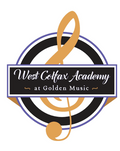
Tuesday brought genuine, actual, bona fide, what-I-call Good News, thanks to months of pressure from the Incorporated Society of Musician’sProtect Music Education campaign, which was supported by over 5,000 individuals and 134 music education and industry institutions. The government confirmed extra funding for the Music Education Hubs, to the tune of £18m, which means that the Hubs will receive £75m in 2015-16. And perhaps even more significantly, in a statement from David Laws, the Minister of State for Schools – also released on Tuesday - the government U-turned on its previous advice to Local Authorities that they shouldn’t continue to fund Music Services. Snuck in at the end of the statement is the following: “Local authorities will continue to have total discretion about whether to spend any of the ESG [Education Services Grant] they receive on providing music services”. Within the convolutions of Department-of-Education speak, that may not sound like much of a ringing endorsement, but it’s a return to the status quo, at least, in which the money for the Hubs is ring-fenced for music education, and Local Authorities still have the power and privilege of funding music in their area.
So, with all the twists and turns of these facts, figures, and jargon, it all means that more children will have access to music education, to instrumental tuition, and singing, and that the Hubs can plan their next year with confidence. Yet problems remain: those discretionary grants from Local Authorities have been slashed in recent years, and are still at threat, and the overall grant for Music Education is not back to the historic high that it reached a few years ago. The ISM’s wider campaign goes on, to secure commitments about what happens after 2016, and meaningful pledges from all the major parties about what happens in the next parliament. Along with the still patchy success of the Hub-project, there’s still a lot of work to be done – even if there’s also reason to celebrate just a little too…
Oh, and one interesting detail from the DoE’s latest statement on Music Education: from September, as part of the National Curriculum requirement for music tuition, every child will now be taught “how to read staff notation”, because this is, they say, “the language in which all the greatest works of Western classical music are written, including Mozart’s piano sonatas, Beethoven’s symphonies, and Verdi’s operas.” Well maybe, but it also happens to be the most useful mnemonic and creative system yet devised for many of the practices of jazz, rock, pop, and contemporary music. “Staff notation” isn’t just a route to the past, it’s one of the most important tools that will give children access to a whole world of musical possibility, to making music their own.
from the Guardian
